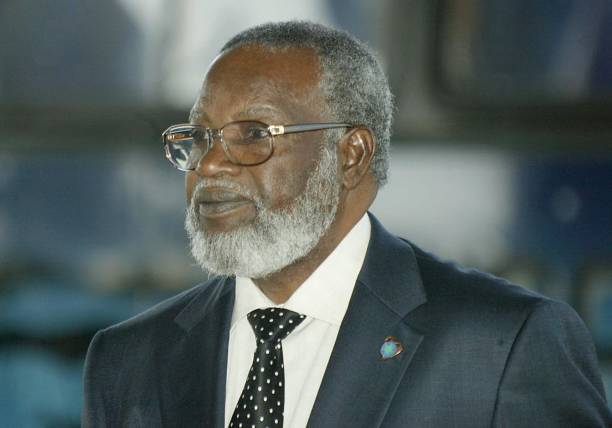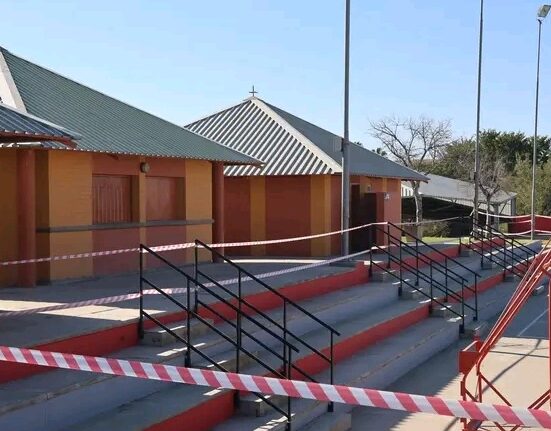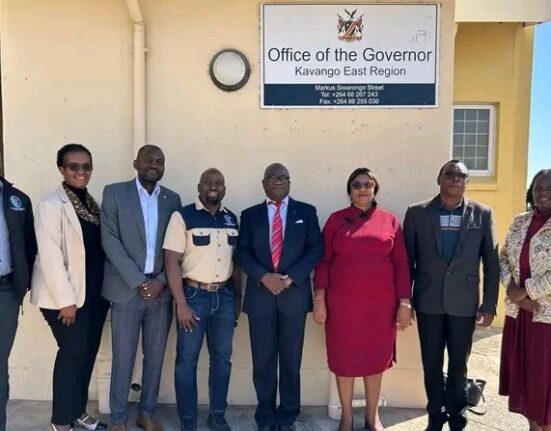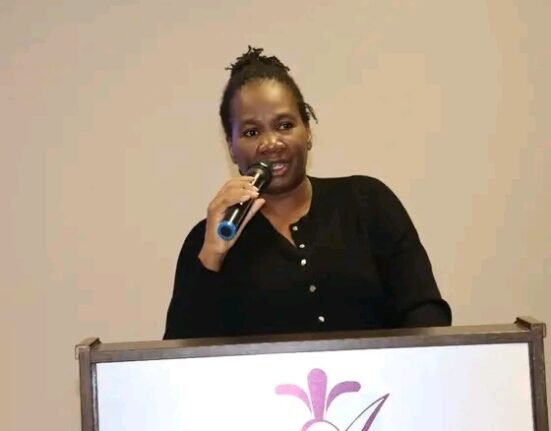Sam Nujoma, widely regarded as the father of Namibia’s independence, played an instrumental role in the nation’s struggle for freedom from colonial rule. As the first President of Namibia, Nujoma’s legacy is deeply woven into the fabric of the country’s political, social, and economic transformation. This article explores Nujoma’s significant contributions, his rise to prominence, and his lasting influence on Namibia’s journey to independence and beyond.
Early Life and Education
Born on May 12, 1929, in the village of Etunda in northern Namibia, Sam Nujoma grew up during a period of intense colonial oppression under German and later South African rule. He was raised in a traditional Herero family, and his early life was shaped by the harsh realities of colonial exploitation. Nujoma’s education was limited in the early years, but his determination to seek knowledge led him to leave Namibia for South Africa in the 1950s.
In South Africa, Nujoma enrolled at the University of Fort Hare, an institution known for its role in producing prominent African leaders. It was here that he became deeply influenced by the anti-colonial and pan-African movements sweeping across the continent. His exposure to revolutionary thought and activism would shape his future endeavors in the fight for Namibia’s independence.
The Founding of SWAPO
In 1960, Sam Nujoma became one of the founding members of the South West Africa People’s Organization (SWAPO), a political party dedicated to the liberation of Namibia. SWAPO became the leading movement advocating for Namibia’s independence, with Nujoma at its helm. The organization’s primary goal was to end South Africa’s illegal occupation of Namibia, which was sanctioned by the United Nations after World War I.
Nujoma’s leadership in SWAPO was instrumental in galvanizing support for the independence movement, both within Namibia and among the international community. Under his guidance, SWAPO engaged in armed struggle against South African forces, utilizing both military and diplomatic efforts to advance the cause of Namibian freedom.
The Struggle for Independence
The 1960s and 1970s were marked by violent uprisings and international pressure as SWAPO waged a protracted war of liberation. Nujoma’s leadership extended beyond military strategy; he was a symbol of hope for millions of Namibians who were oppressed under apartheid-like policies. He spent much of this period in exile, rallying global support for Namibia’s cause and securing backing from various African nations, as well as socialist countries such as the Soviet Union and Cuba.
Nujoma’s leadership was marked by resilience and an unwavering commitment to the liberation struggle. He was instrumental in ensuring that the issue of Namibian independence remained at the forefront of international diplomacy, and his efforts in lobbying the United Nations and other global bodies played a key role in the eventual recognition of Namibia’s right to self-determination.
In 1978, after years of guerrilla warfare and diplomatic pressure, the United Nations brokered the independence process, leading to the United Nations Transition Assistance Group (UNTAG) overseeing Namibia’s transition to a democratic state.
Namibia’s Independence and Nujoma’s Presidency
On March 21, 1990, Namibia officially gained independence, and Sam Nujoma was sworn in as the country’s first President. His inauguration marked the culmination of a long and arduous struggle for independence. As the first leader of a free Namibia, Nujoma had the monumental task of uniting a divided nation, rebuilding its infrastructure, and establishing a new democratic government.
Nujoma’s presidency focused on nation-building, economic development, and social justice. Under his leadership, Namibia made significant strides in improving education, healthcare, and the overall standard of living for its citizens. His government focused on creating a balanced economy, with particular emphasis on land reform and the redistribution of resources to benefit the majority of Namibians who had been marginalized during the colonial period.
Nujoma also worked towards strengthening Namibia’s diplomatic ties with other African countries, as well as forging relationships with global powers. His leadership during the early years of independence set the stage for Namibia’s continued growth as a democratic nation in southern Africa.
Nujoma’s Legacy and Impact
Sam Nujoma’s legacy as the father of Namibia’s independence extends beyond his role as the first President. His contribution to the liberation struggle, his efforts to foster unity and reconciliation in a divided society, and his determination to ensure Namibia’s place in the global community have cemented his status as one of Africa’s foremost liberation leaders.
During his presidency, Nujoma focused on social welfare, infrastructure development, and economic growth. His policies aimed to transform Namibia from a country torn by colonial exploitation into a peaceful, democratic, and prosperous nation. One of the key achievements during his leadership was the introduction of the 1990 Constitution, which guaranteed fundamental human rights and freedoms for all Namibians.
Moreover, Nujoma’s work in promoting regional integration within Southern Africa and his advocacy for Pan-African unity remains a cornerstone of his legacy. Namibia played an active role in regional diplomacy, contributing to the stabilization of the southern African region.
Nujoma’s post-presidency years saw him transition to a statesman who continued to advocate for Namibia’s interests, both domestically and internationally. His role as an elder statesman and his influence on political discourse in Namibia remain strong even after his retirement from active politics.
Sam Nujoma’s journey from a young boy in northern Namibia to the father of the nation and its first President is a testament to his extraordinary dedication, vision, and leadership. His contributions to Namibia’s independence and the creation of a democratic society are etched in the history of the nation, and his impact continues to influence Namibian politics today.
As Namibia celebrates its achievements and strives to build a prosperous future, Sam Nujoma’s legacy serves as an enduring reminder of the power of determination, unity, and the fight for justice. His place in history as the father of Namibia’s independence will remain forever secure, inspiring generations to come.
Join 'Namibia Today' WhatsApp Channel
Get the breaking news in Namibia — direct to your WhatsApp.
CLICK HERE TO JOIN












